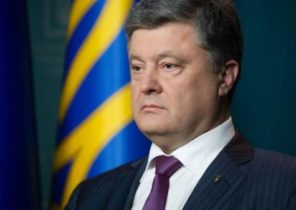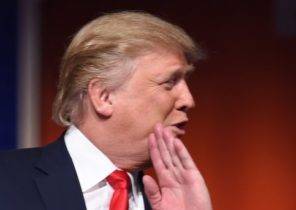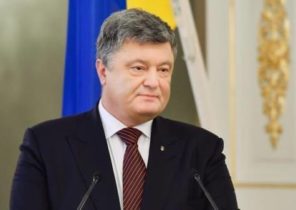The most notable news about the Eurasian economic Union (EEU) in recent times has been that of a country which even not (yet) a member. The Parliament of Uzbekistan in April approved the proposal for participation of Uzbekistan to the EAEC as an observer. This step can be a precursor to full membership.
President Shavkat Mirziyoev kept observers in suspense, not giving clear messages regarding its position on this issue. In June of 2019, he left the question open, saying that the country first needs to more carefully think things through. At the same time Uzbekistan is taking consistent steps towards accession to the world trade organization (WTO), for advocating United States. The problem is that entry into both units in the short term is impossible, since membership in the EEU would be contrary to the principle of non-discrimination of the WTO.
One of the headaches Mirziyoyev is that most of the population of Uzbekistan are, apparently, supported the accession to the EEC. According to the results of a survey conducted recently by the Center for economic studies and reforms (TSEIR) under the presidential administration, 74% of respondents expressed support for the membership. According to 51% of respondents, they expect that joining the bloc would lead to lower prices for goods and services, which in modern times is a major factor.
Meanwhile, Uzbekistan is considering the prospect of joining the Eurasian economic Union, inside the unit there are signs of cooling enthusiasm.
Speaking may 19 at the meeting of the Supreme Eurasian economic Council, held via videoconference, the President of Kazakhstan Kassym-Zhomart Tokayev has met with surprise, stating that a joint document describing the strategic vision of the unit, need to “further discussion and study”.
The document with the long name “On the strategic directions of development of the Eurasian economic integration until 2025” includes many regulatory and legal provisions, which must define the future contours of the EEU and its permanent structures.
“The proposed Strategy “harmonization and unification” of legislation… customs, technical regulation, consumer protection, in our opinion, does not meet the principle of reasonable sufficiency, — said Tokayev, using the phrase once used in the USSR in the context of the policy of nuclear deterrence. — This will lead to the rejection of the strategy of national public opinion, since the strategy would limit the sovereign rights of governments and of Parliament.”
His words sparked a variety of reactions. Pay special attention to the sovereignty of Kazakhstan Tokaev’s remarks pleased, and in favor of analysts sniffed that it was just a minor incident, just an internal disagreement, which is nothing special.
“The press is often too much attention to controversy and debate within the EAEU, but says that emerging issues are recognized as stakeholders and are being resolved peacefully and in working order,” wrote Nikita Mendkovich of.
Whatever doubts Tokayev, they are likely to have been shed, when on may 26 he called Russian President Vladimir Putin to discuss “bilateral cooperation and cooperation within the EEU”.
To show that there is no sediment left, Tokayev gave an interview to the Russian “Komsomolskaya Pravda”, in which he stressed that, in expressing his doubts, he did not mean anything bad. This is his comment probably caused the concern of the supporters of the strengthening of sovereignty.
“Sometimes the EEU, even at the highest level, there are heated discussions, but they are motivated by the common desire to make the Union more successful, respected, attractive. After all indifference is the true sign of degradation,” he said in an interview published June 2.
Meanwhile, Kyrgyzstan can say that the correct way to get the degradation of the EAEU is to completely ignore the fundamental principle of free movement of goods and people within the block. Media has tired to cover the fact that the congestion of hundreds of trucks on the Kazakh-Kyrgyz border, because of the slowness of the Kazakhstan frontier guards.
The Committee on foreign Affairs of the Kyrgyz Parliament on 2 June voted unanimously for the proposal to remove from the agenda all related to the EAEU issues not yet resolved the issue with the border. Parliament in recent years has become nothing more than a toothless body, which reflects the position of the Executive branch, therefore we can confidently say that this step reflects the official position of the latter.
Lately for analysts (and to some extent governments) in the Eurasian economic Union, it became common to speak publicly about the wisdom of membership in the bloc. The assessment of the permanent regulatory body of the EAEU, the Eurasian economic Commission, the combined GDP of the bloc may this year be reduced by about 3.2 or 7.2%.
For countries that do not have large reserves of oil and gas (i.e., Armenia, Belarus and Kyrgyzstan), the real benefits come common electricity market, through which you will be able to significantly reduce the cost of lighting, heating and fuel for cars. The idea of forming a common gas market by 2025 was conditionally agreed in 2016.
But 2025 is still necessary to survive, and Belarus, in particular, expressed frustration about the impossibility of reviewing the pricing mechanisms for gas now. Belarusian leader Alexander Lukashenko said at the April working meeting of heads of state, held in a videoconference that “it is obvious that with such a sharp change in the economic environment, the price needs to be more adaptive”. As noted on the website of the President of Belarus, Lukashenko then “appealed to the President of Russia Vladimir Putin to be able to consider this issue.”
If a joint document on strategic development of the block will not introduce provisions that will put an end to this situation, in which Armenia and Belarus pay more for gas than Western European countries, a consensus around this document will not be achieved. The resolution of these aspects, the partners have until October or November, when Minsk will host the next summit of the EEU.
But Putin is very highly lifted lath. “We believe that a single tariff can be implemented only in a single market with a single budget and a single system of taxation,” he said may 19.
Cynically minded observers suspect that Moscow is not willing to give up the cudgel, with which she so often used to keep partners in check. Well, except that if partners give up their economic sovereignty…







